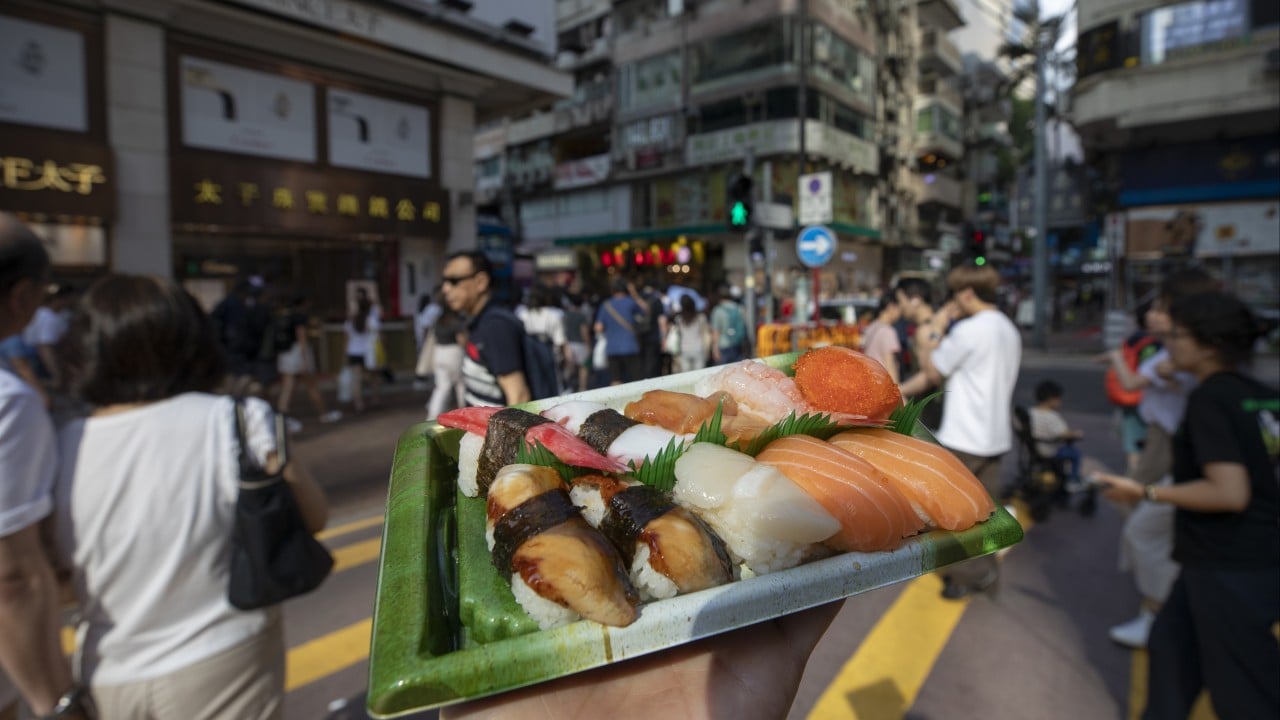Hong Kong has warned of tougher action to restrict Japanese seafood imports if nuclear contamination from the Fukushima power plant worsens, a year after the city banned aquatic products from 10 prefectures in the country.
The Environment and Ecology Bureau issued the warning on Saturday after the government rejected calls from Japanese authorities last week to lift a ban introduced last August on seafood imports, citing concerns over the discharge of treated waste water from the stricken Fukushima nuclear power plant.
But a catering sector representative dismissed the need for further restrictions on Japanese seafood which had already dealt a blow to local restaurants, arguing the current controls were strict enough to ensure safety.
The bureau said it was necessary to take precautionary measures to ensure food safety in the wake of more incidents at the nuclear power plant.
“Over the past year or so, seven accidents at the Fukushima nuclear power plant have been reported by the media alone. The employees needed to be hospitalised due to accidents, and the surrounding environment was polluted,” it said in a Facebook post.
“The most recent accident was just two weeks ago, an average of one in about two months, and the frequency is shocking.
“Given such a level of management and surveillance at the Fukushima nuclear power plant in Japan, and the serious consequences that could arise, it is scientifically justified for Hong Kong to take precautionary measures.”
The bureau said the government would continue to closely monitor the development of nuclear effluent discharge, including scientific data from Japan and the International Atomic Energy Agency.
It also said it would examine the impact of the nuclear effluent discharge on food safety, and review the relevant measures from time to time.
“If the situation is found to be deteriorating, [authorities] will not rule out adopting further measures to enhance food safety in Hong Kong,” it said.
The bureau reiterated that the Fukushima nuclear effluent discharge would continue for 30 years and involved more than 1.3 million tonnes of radioactive waste, and any mistake could have “catastrophic consequences” for marine ecology and food safety.
Hong Kong’s warning of potentially more restrictions followed a visit by Japanese fisheries minister Tetsushi Sakamoto, who called for an end to the ban last Friday as he promoted his country’s products at the annual Food Expo in the city.
He met Deputy Chief Secretary Warner Cheuk Wing-hing, saying afterwards he had called for the ban to be dropped as it had no scientific basis, Japanese media reported.
But Cheuk stood firm, saying he had expressed concerns during the meeting over the continued release of the treated waste water into the ocean, noting the “spillover effects” of the discharge were unprecedented.
The Japanese side had so far been unable to guarantee that the filtering and dilution systems would remain effective in the long run, he added.
In August last year, Japan began discharging some of the 1.34 million tonnes of treated nuclear waste water collected since a tsunami crippled the Fukushima Daiichi nuclear plant in 2011.
The decision to discharge the water prompted the Hong Kong government to ban aquatic products from 10 prefectures: Tokyo, Fukushima, Chiba, Tochigi, Ibaraki, Gunma, Miyagi, Niigata, Nagano and Saitama.

Industry leaders had said almost a third of Hong Kong’s Japanese restaurants shut their doors permanently over the past year as the ban on imported seafood took its toll, on top of a slower than expected recovery in tourism.
High-end omakase restaurants offering expensive leave-it-to-the-chef menus with top-quality sushi were said to be hardest hit.
Hong Kong Japanese Food and Cuisine Association chairman Dennis Wu said there was no need to further tighten the restrictions on seafood and other products as the current controls were tough.
“The current gatekeeping system is already very good at preventing any nuclear contamination,” he said.
“So far there has been no report of imported Japanese food exceeding its standards so I don’t see the need to further tighten the restrictions.”
But Wu said it might be better to observe the situation for a longer period before considering relaxing the ban.
“The first three months of the ban had been quite impactful as many Hongkongers were deterred by the nuclear-contaminated risks,” he said.
“Japanese restaurants shutting down over the year was due to a lot of reasons such as people heading north, but recently more diners have returned.”
Japan welcomed 1.28 million visitors from Hong Kong in the first six months of 2024, a 16 per cent increase compared with the same period in 2019.


